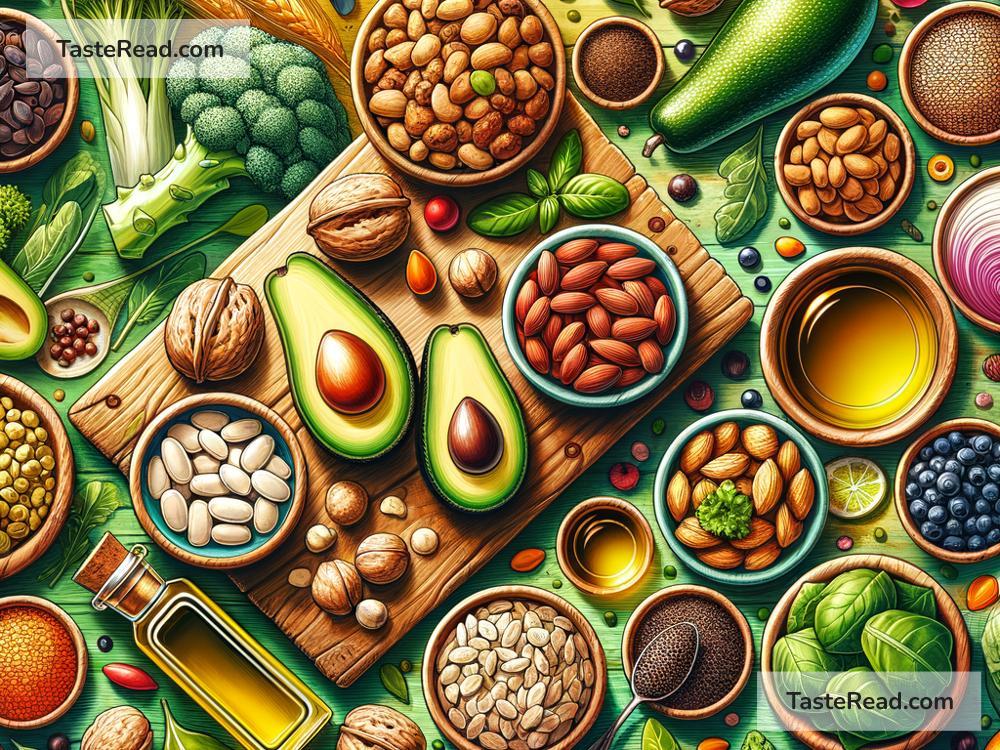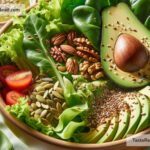Understanding the Role of Dietary Phytosterols in Health
We’ve all heard about vitamins, proteins, and carbohydrates that make up our diet. But there’s a lesser-known group of nutrients, called phytosterols, that can play an important role in keeping us healthy. You may not know much about phytosterols, but don’t worry! This article will break down what they are, where they come from, and how they benefit your health—using simple language.
What Are Phytosterols?
Phytosterols, also known as plant sterols, are natural compounds found in plants. They are similar to cholesterol in terms of structure. Cholesterol is found in animal products like meat, eggs, and dairy, whereas phytosterols come from plant-based foods like fruits, vegetables, nuts, seeds, and grains.
Just like cholesterol plays important roles in the human body, phytosterols serve key functions in plants, helping them maintain their structure and health. When humans eat these compounds, they have special effects on our body—particularly for heart health.
How Do Phytosterols Work in the Body?
Phytosterols have a unique ability: they can compete with cholesterol for absorption in the digestive system. Cholesterol is absorbed in the intestines, but when phytosterols are present, they “block” cholesterol from being absorbed as easily. This means less cholesterol ends up in your bloodstream. High cholesterol levels are linked to heart disease, so phytosterols can help lower your risk.
In simple terms, phytosterols act like friendly traffic guards in your gut. They stop the “bad” cholesterol from entering your body and keep your heart healthier.
Sources of Phytosterols
Luckily, phytosterols are naturally found in many plant-based foods. If you eat fruits, vegetables, nuts, seeds, and whole grains, you’re already getting some phytosterols. Here are some of the best sources of dietary phytosterols:
- Vegetable oils: Oils like sunflower, corn, and soybean oil contain high levels of phytosterols.
- Seeds and nuts: Almonds, sunflower seeds, and peanuts are excellent sources.
- Whole grains: Foods like whole wheat bread, oats, and barley provide phytosterols.
- Legumes: Lentils, beans, and chickpeas also contain these helpful compounds.
- Fresh fruits and vegetables: Spinach, broccoli, oranges, and avocados all have small amounts of phytosterols.
While these natural foods give you a healthy dose of phytosterols, they’re also found in fortified products like margarine and yogurt. Fortified foods are specially made to include extra phytosterols to help with cholesterol management.
Benefits of Phytosterols for Health
Now that you know where phytosterols come from, you’re probably wondering what they can do for your health. Here are the major benefits:
1. Lowering LDL Cholesterol
LDL cholesterol is sometimes called “bad” cholesterol because it can build up in your arteries and increase the risk of heart disease. Studies have shown that consuming phytosterols regularly can lower LDL cholesterol levels by up to 10–15%. Even small reductions in LDL cholesterol can have a big impact on heart health over time.
2. Reducing Risk of Heart Disease
By lowering LDL cholesterol, phytosterols can help prevent heart disease, one of the leading causes of death worldwide. A heart-healthy diet that includes foods rich in phytosterols can protect your heart and blood vessels.
3. Anti-inflammatory Effects
Some research suggests that phytosterols have anti-inflammatory properties. Chronic inflammation in the body is linked to diseases like diabetes, arthritis, and even cancer. While more studies are needed, phytosterols might offer additional health benefits by reducing inflammation.
4. Helping with Weight Management
Phytosterols may help with weight management indirectly. Foods rich in phytosterols, like nuts, seeds, and whole grains, are often high in fiber and healthy fats. These foods can keep you full longer, reducing overeating and helping you maintain a healthy weight.
How Much Should You Eat?
While phytosterols are highly beneficial, they work best in moderation. Experts recommend consuming about 2 to 3 grams of phytosterols per day to lower LDL cholesterol effectively. This is more than what most people naturally get in their diets, which is why fortified foods like spreads, yogurt, or milk products can help you reach this goal.
A Few Points to Remember
While phytosterols can be helpful, they’re not the solution for everyone. Here are a few important notes:
1. They’re not a replacement for medication. If you have extremely high cholesterol, medications prescribed by your doctor are still necessary.
2. Balance is key. Eating phytosterol-rich foods is just one part of a healthy lifestyle. Regular exercise, avoiding high-saturated-fat foods, and not smoking also contribute to heart health.
3. Fortified foods should be consumed mindfully. Some spreads or snacks with added phytosterols still contain sugar or high calories, so check labels carefully.
The Bottom Line
Phytosterols are tiny but powerful nutrients found in plant foods that can help lower cholesterol and reduce the risk of heart disease. By including foods like nuts, seeds, vegetable oils, fruits, and vegetables in your diet, you can enjoy the benefits of these plant compounds while improving your overall health.
Simple changes, like adding avocado to your salad or switching to whole-grain bread, can boost your phytosterol intake. If you need extra help managing cholesterol, fortified foods are also a great option.
Understanding the role of phytosterols is a step toward healthier living. Start making these small dietary changes today, and your heart will thank you tomorrow!


